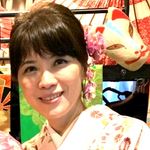0

He doesn't want to marry me... or not!?
6年前As a Japanese teacher, I am finding more and more interesting facts about my own language through many interesting questions from my students.
The other day one of my students gave me this interesting question and right after that I saw an interesting example in a Japanese drama too so I will share it with you.
彼は結婚しないと言ったの。(かれは けっこん しない と いった の)
If you are learning Japanese, can you guess what it means? Many of you might say it means,
"He said that he won't get married (to me or someone else)."
Right. It can be correct but depends on the tone he uses, it can totally mean the opposite.
"He said (to me), "Why don't we get married?"
Yes, it's complicated. If you make "結婚しない” sentence into a question with going up tone towards the end, "彼は結婚しない?と言ったの。” That means he was asking her if she will marry him. We don't use question marks in Japanese so the sentence looks exactly the same but depends how you say it, it can totally mean different things.
結婚しない (I won't get married.)
結婚しない?(Shall we get married?)
Both negative sentences. It shows someone’s intention or plan = "I won’t do something." without a question tone but on the contrary, it shows just a suggestion, "Why don’t you do something with me….?" with a question tone.
In Japanese, we often drop our subjects, objects and even particles so it makes it even harder for learners. I really feel for my students.... But again, we do not really like speaking so clearly. If it's too direct, it's supposed to be less polite, refined, or interesting in our culture. After lengthy sentences or messages, you will finally find what we really want to say (or you may still be left confused. ^^;) I live in English speaking countries for more than 20 years so now many Japanese people are too confusing even for me and I often have to make sure what they really want to say.
I will show you more similar examples;
”コーヒー飲まない。”
Depends how you say it (with question tone or not), it means, "I won't drink coffee." or "Shall we drink coffee?"
If you ask the same question in an affirmative sentence, ”コーヒー飲む?”("Would you like a coffee?") the speaker is expecting his/her friend will probably have one. If you ask in a negative question, ”コーヒー飲まない?” ("Why don't we drink coffee?" ) it's just a suggestion and the speaker doesn't only expect "Yes" answer. Plus here the speaker is asking "Shall WE drink coffee?" including the speaker him/herself.
コーヒー飲まない?Before entering the cafe, saying, “Why don’t we drink coffee (together)?
コーヒー飲まないの?You don’t drink coffee? (surprised a bit, speaker's emotion is involved)
コーヒーにする?Shall we get a coffee? / You'll get a coffee?
Yes, emotion emotion and emotion. We have so many different types of expressions depends what the speaker is really thinking or feeling. Often all translated into one simple sentence in English. When we are young, we all learn "how to read the real feelings of others." at school. In Japanese class, we often have to "read" what the writer "really" wants to say (even though it's not stated clearly)
I am sorry our language is really complicated... but please trust me, you will get there one day. It just needs a lot of practice. All the best! がんばってね!
